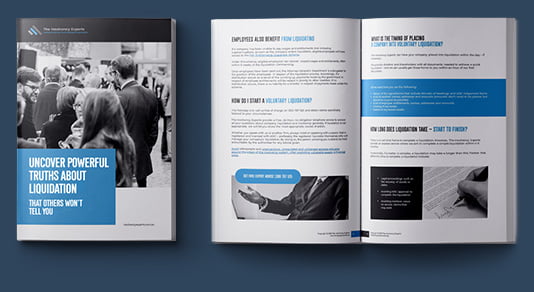What Happens to Leased Assets in Liquidation?
How banks and finance companies typically react to bad news.
Call Free Expert Advice 24/7Leased Assets in Liquidation
If a guarantor can’t service a lease, the finance company can repossess & sell the financed equipment and recover any shortfall from the guarantor.
The Insolvency Experts Can Help:
Explain Your Position
Lowest Cost Liquidations
Provide 24 Hour Support
Understanding Leased Assets in Liquidation
A lease, hire purchase or other finance agreement typically contains a personal guarantee. As such, Directors need to understand what is likely to happen with leased assets in a liquidation setting.
If the sale of a leased asset is likely to generate a positive return to creditors, the Liquidator will take and sell the asset and payout the finance owing.
If however a lease is likely to produce a negative outcome, or a liability, the Liquidator will disclaim any interest in the contract and the asset.
Do you need help or want to talk?
Call 1300 767 525 to speak with us, Free of charge, 24 hours a Day, or complete the form below and we will get back to you within 30 minutes!
Call FREE Expert Advice 24/7The Ultimate Guide To Insolvency
Uncover POWERFUL TRUTHS about liquidation that others won’t tell you

If a liquidator finds a company has assets subject to finance, he will compare:
- The value of the asset -v- its payout value.
- If the value of the asset exceeds the payout value of the finance – the item has positive equity. The Liquidator will look to sell it the item and payout the finance.
- If the payout exceeds the value of the asset – it is a net liability. The Liquidator will have no interest in it and will disclaim the contract and the asset.
Where there is positive equity and the director wants to retain possession of the asset, the liquidator may sell the net equity in the contract to the director who is then required to continue servicing the finance agreement.
If the payout exceeds the value of the asset, the liquidator will disclaim any interest in the asset. A disclaimer formally advises the financier that the company has no further interest in the item or the contract.
Once the financier receives this notice, it will act in a number of ways.
Firstly, if they are not satisfied with the director because they have experienced difficulties with payments etc., the Finance Company may repossess and sell the item. If this occurs, the guarantor may be liable for collection fees, penalties and interest as well as being charged for any shortfall on the facility after the item has been sold, usually at auction.
Depending on the size of any shortfall, bankruptcy or the loss or sale of the guarantors’ home or other assets may follow.
Alternatively, if the guarantor is able satisfy the finance company that the finance agreement will be honoured, the financier may be satisfied to allow the guarantor to continue in possession if they continue making payments.
If a guarantor is unable to continue servicing the finance agreement, they may consider selling the financed equipment but as the encumbrance will be noted on the title, clear title will not be able to be provided to any purchaser without the finance company agreeing to a sale.
A finance company will usually give permission for the sale of a leased asset only where the guarantor provides a top up payment to ensure full payout of the finance agreement. It is only at this time the finance company will agree to removal of any listings against the assets’ title.
Low Cost Liquidations
Licensed Expert Answers All Calls 24/7
(Not a Call Centre Salesperson!)
Free Consultation
Call 1300 767 525 anytime or fill in your details below and one of our expert advisers will get back to you within 30 minutes!
Out Story and Key Credentials
We are a specialist insolvency practice providing free 24 hour advice to company directors & individuals throughout all states & territories of australia.
Our highly experienced & trusted professionals are qualified, licensed & regulated by the asic.
Established in 2006, we were the original, low cost liquidation provider and have since helped thousands of directors and hundreds of companies in a wide array of industries.
-
24/7 Helpline 100% of Calls Answered by Qualified Expert – not a call centre
-
ASIC License 296215 since 2006
-
Operating in All States of Australia
-
30+ Years Experience
-
1,500+ Directors Assisted Annually
-
85% of liquidations effectively completed within 4 – 6 months
-
Low Cost Liquidation Expert
-
Rated 5 out of 5 on Google Reviews
The Insolvency Experts - Everything you need to know - Free of charge and without obligation

